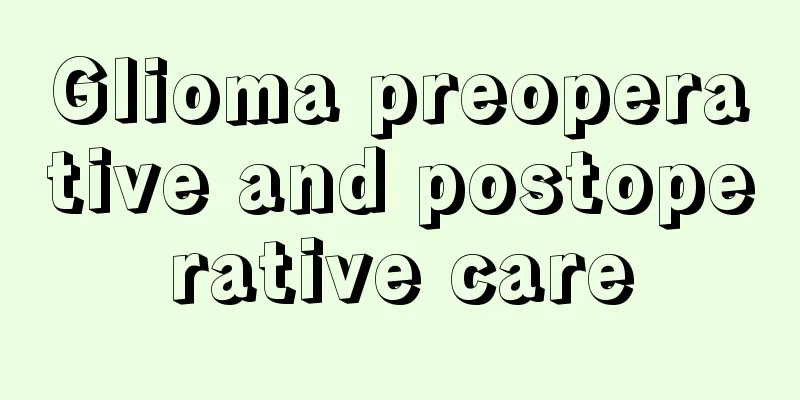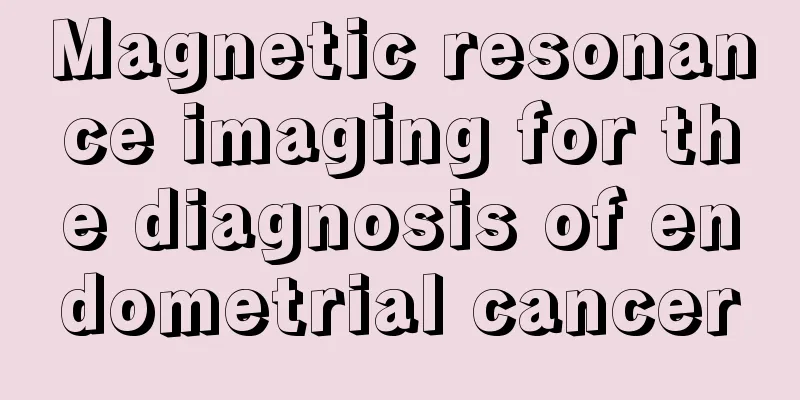Glioma preoperative and postoperative care

|
Glioma is a brain tumor disease that is very harmful and seriously affects people's daily lives. Most glioma patients are treated through surgery. If they do not pay attention to postoperative care, they will relapse. So what are the preoperative and postoperative care for glioma? Let me tell you below. 1. Preoperative care 1. Psychological care: Nurses should master communication skills, establish a good nurse-patient relationship with patients and their families, communicate, actively collect patient information, introduce disease routines, treatment methods and effects to patients and their families, introduce examples of the same disease, explain the content and methods that need attention, so that patients can build up confidence in overcoming the disease and actively cooperate with treatment. 2. Headache care: Assess the impact of increased intracranial pressure pain on the patient, patiently explain the cause of the pain, closely observe the patient's headache symptoms, such as changes in vital signs, consciousness, and pupils, instruct the patient to raise the head of the bed 150 to 300 degrees, and take medication as prescribed by the doctor to relieve headaches. Once the patient has changes in consciousness or pupils, immediately consider the occurrence of brain hernia, notify the physician in time and cooperate with rescue. 3. Diet care: Before glioma surgery, supplement various nutrients as much as possible, and fast for 12 hours before surgery. On the first day after surgery, if there is no dysphagia, choking and other symptoms, give the patient a liquid diet, and take small and frequent meals to increase nutrient intake. Such as: milk, pork rib soup, chicken soup, vegetable porridge, etc. Patients may have varying degrees of cerebral edema after craniotomy, and the diet should be light, limiting the intake of sodium salt and water. And do a good job of dietary education for patients and their families, obtain the cooperation of patients and their families, and achieve scientific and reasonable nutritional supplementation. 4. Changes in perception: The patient's vision may decrease due to the compression of the nerves by the tumor. Assess the patient's degree of visual impairment and olfactory perception, explain the reasons to the patient, actively provide daily care, and advise the patient to be accompanied by family members when going out, pay attention to safety, and prevent accidents. (II) Postoperative Care 1. Condition observation: Closely observe changes in the patient's consciousness, pupils and vital signs. 1) Consciousness observation is the primary task of neurosurgery nursing work. The patient's consciousness level should be assessed from the patient's language, eye opening, and movement. When examining the patient, pay attention to the patient's expression and posture, and use verbal stimulation to wake the patient up at regular intervals and have a simple conversation. If there is no response, proceed to The patient's reaction is observed by stimulating pain with walking, compressing the supraorbital nerve or pinching the outer edge of the pectoralis major muscle with hands. Consciousness observation is often related to whether life can be saved in time and the quality of life can be guaranteed. Coma means brain failure, just like uremia means kidney failure. All rescue measures must be carried out when consciousness has just deteriorated and brain function is still in the reversible stage. 2) Pupillary changes are important in determining the condition, especially when intracranial pressure is high—cerebellar tentorial notch The pupillary reflex, pupil size, symmetry and equal roundness of both sides should be observed, and their dynamic changes should be observed continuously. The left and right sides should be examined separately, and the direct and indirect light reactions should be noted, which is of great significance for distinguishing pupil changes caused by brain lesions and optic nerve or oculomotor nerve damage. 3) Monitor the changes of vital signs continuously for 24 hours after surgery, maintain blood pressure at 140/60 mmHg and pulse at 140/60 mmHg. The pulse is 70-80 times/min, the breathing is 20 times/min, and the body temperature is below 38.5℃. If the pulse is slow and loud, less than 60 times per minute, the breathing is slow and deep, and the blood pressure is high, it often indicates the occurrence of postoperative intracranial hematoma. At this time, the patient needs to undergo a CT scan and be sent to the operating room to remove the intracranial hematoma after diagnosis. If the patient is not treated in time and the brain pressure is relieved, the patient will enter the late decompensation stage, with a fast and weak pulse, a drop in blood pressure, abnormal breathing or sudden cessation. The patient's body temperature may be high after tumor craniotomy. If the patient's body temperature suddenly rises after returning to normal after surgery, the possibility of wound infection, intracranial, lung and urinary system infection should be considered. |
<<: What are the precursors of glioma
>>: What are the nursing measures for glioma
Recommend
Does donating plasma have any effect on the body?
At present, many people donate blood or plasma. T...
Which is more accurate, blood test or ultrasound?
If women's menstruation is delayed for severa...
Is asthma cough contagious?
Asthma is a relatively serious disease. This dise...
We must pay attention to the prevention of prostate cancer in a timely manner
Prostate cancer, as a common tumor disease, can c...
Blacklist of blood vessel "natural enemies", these five are the most lethal
When it comes to vascular care, many people think...
What should I do if my luck is always bad
Everyone hopes that their life will be smooth sai...
What to do if you have acne on your face
If a person's facial skin is well maintained,...
Why does my breath get bad after eating meat?
Ms. Xie, a reader from Heilongjiang, asked: I am ...
A brief discussion on some early symptoms of gastric cancer
Gastric cancer is one of the most common cancers ...
Can aloe vera gel cure acne
Nowadays, many young people do not pay attention ...
Cost of colorectal cancer gene testing
Do you know the cost of colorectal cancer surgery...
What are the symptoms of mushroom poisoning
The phenomenon of mushroom poisoning is not uncom...
What are the common clinical manifestations of hamartoma
In life, we should raise awareness of disease pre...
What are the signs of thyroid cancer
The signs of thyroid cancer may not be obvious, w...
What to do if prostate cancer enlargement presses on the bladder? The harm of prostate cancer enlargement to the body
Nowadays, many middle-aged and elderly people suf...









